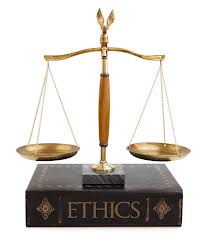 The New Jersey Bar Association governs how a law firm or an attorney conducts themselves when engaging in advertising or when they are communicating via online media such as the Internet or websites. Since an attorney website is basically considered to be a form of communication or a means of advertising they are subject to being regulated by the bar’s rules. Each state may have its own set of rules regarding the handling of websites or advertisements by attorneys; and it is essential that an attorney abide by the rules and guidelines set in their individual state. In many cases, an attorney hires a third party to develop their professional website and therefore some of the guidelines can get overlooked. In these cases, an attorney can face disciplinary actions or sanctions if the rules set by the bar are violated whether knowingly or unknowingly.
The New Jersey Bar Association governs how a law firm or an attorney conducts themselves when engaging in advertising or when they are communicating via online media such as the Internet or websites. Since an attorney website is basically considered to be a form of communication or a means of advertising they are subject to being regulated by the bar’s rules. Each state may have its own set of rules regarding the handling of websites or advertisements by attorneys; and it is essential that an attorney abide by the rules and guidelines set in their individual state. In many cases, an attorney hires a third party to develop their professional website and therefore some of the guidelines can get overlooked. In these cases, an attorney can face disciplinary actions or sanctions if the rules set by the bar are violated whether knowingly or unknowingly.
Bar Rules and Guidelines
According to the New Jersey Rules of Professional Conduct an attorney is allowed to advertise their legal services using various forms of public media which includes the Internet. However, each attorney must keep a record of all the advertisements or communications that were made via Internet resources for a minimum of 3 years after it was last used. They must also include the information about when and where each advertisement or communication was used.
False or Misleading Language
An attorney is not allowed to make any types of misleading or false statements about their services or themselves. According to Rule 7.1 of the NJ Rules of Professional Conduct a statement or any form of communication can be considered as misleading or false if:
- The information misrepresents the law or facts;
- Essential facts are omitted;
- The information, communication or ad can potentially lead the viewer of the site to an unrealistic expectation to the types of results an attorney can attain;
- The information is comparative of the services of another lawyer – unless the facts can be substantiated factually, includes the names of both lawyers and includes a disclaimer;
- Discusses legal fees in any way except under some very limited circumstances.
Disclaimers on NJ Attorney Websites
Any time an attorney or a law firm includes information that could be perceived as misleading or false in any way there needs to be a disclaimer on the site. The disclaimer has to be placed in a similar manner as the information and it must have the same prominence as well as the same legibility as all the other content on the website. A disclaimer can help prevent any potential clients from developing an unrealistic or unjustified expectation about the attorney’s services. If a lawyer compares his services to another legal professional, he must include the disclaimer which includes the name of the other attorney and organization being compared and only in cases where the statement is verifiable. The site must also contain this statement: “No aspect of this advertisement has been approved by the Supreme Court of New Jersey.”
Advertising Practice Areas on Attorney Websites
An attorney is allowed to state what legal areas they practice on their websites. However, they cannot state that they are a recognized or certified specialist in any field of the law except under limited circumstances. They may claim that they are certified, specialize in or are a specialist only if:
- The lawyer has been allowed to engage in patent practice before the US Patent and Trademark Office;
- The lawyer is engaged in admiralty practice; or
- The lawyer has been granted the state certification by the Supreme Court of NJ or another organization that has been approved by theABA. They must then state the name of the organization providing the certification and they cannot state the information in any way that is false or misleading.



